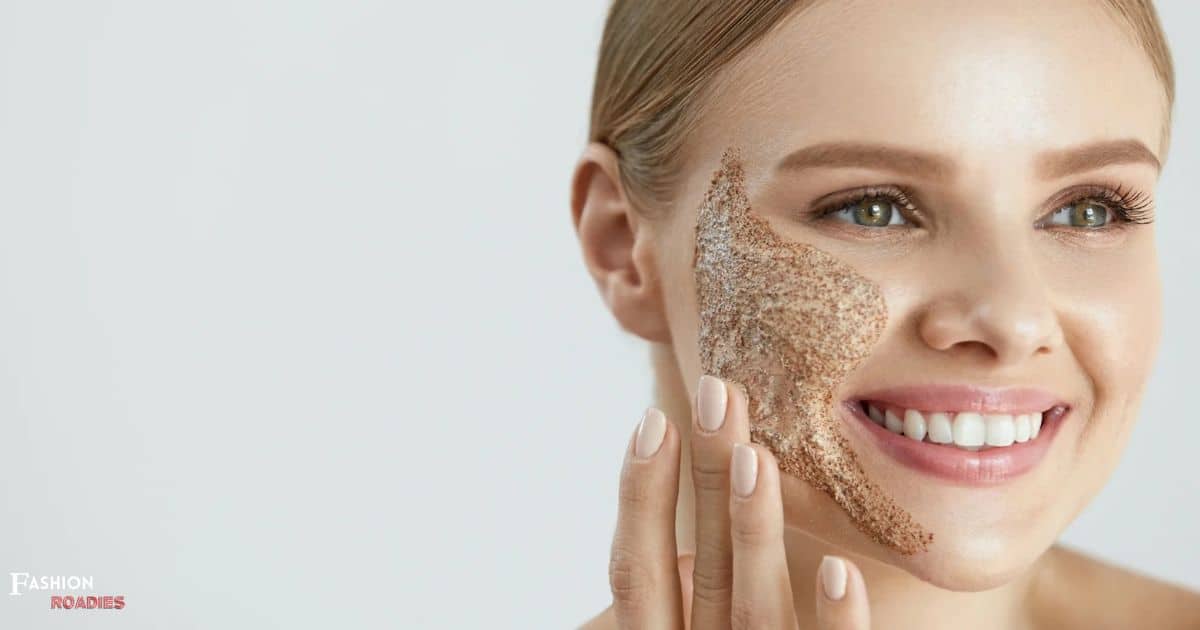Are you looking for a body care routine that will leave your skin feeling rejuvenated and radiant? Look no further. In this article, we will explore the key elements of a good skin care routine for your body. From cleansing and exfoliation to moisturization and sun protection, we will provide you with expert advice on how to achieve healthy and nourished skin. Discover the secrets to maintaining a glowing complexion and feeling your best from head to toe.
Key Takeaways
- Choose a cleanser suited for your skin type and concerns
- Regularly exfoliate to remove dead skin cells and promote cell turnover
- Use body oils for deep hydration
- Apply broad-spectrum SPF of at least 30
Cleansing
To begin a good skin care routine for your body, it is essential to start with thorough cleansing. Choosing the right cleanser is crucial in maintaining healthy skin. Look for a cleanser that suits your skin type and addresses any specific concerns you may have, such as dryness or acne. Avoid harsh soaps or cleansers that strip the skin of its natural oils, as this can lead to dryness and irritation.
Regular exfoliation is also important as it helps to remove dead skin cells, unclog pores, and promote cell turnover. Incorporating a gentle exfoliating scrub or using a chemical exfoliant can help to achieve a smoother and brighter complexion. Remember to cleanse your body daily, paying attention to areas that are prone to sweat and build-up, such as the underarms and feet.
Exfoliation
Incorporating regular exfoliation into your body skin care routine is essential for achieving a healthy and radiant complexion. Exfoliation helps to remove dead skin cells, unclog pores, and improve blood circulation, resulting in smoother and more youthful-looking skin. Here are some effective methods of exfoliation:
- Dry brushing: This technique involves using a dry brush with natural bristles to gently scrub the skin in circular motions. It helps to remove dead skin cells and stimulate lymphatic drainage.
- Body scrubs: These products contain exfoliating ingredients like sugar or salt particles that help to slough off dead skin cells and reveal fresh, glowing skin.
- Exfoliating gloves or mitts: These textured gloves or mitts can be used with your regular body wash to exfoliate the skin and improve its texture.
- Chemical exfoliants: These products contain ingredients like alpha-hydroxy acids (AHAs) or beta-hydroxy acids (BHAs) that help to dissolve dead skin cells and promote cell turnover.
Remember to exfoliate your body 1-2 times a week and always follow up with a moisturizer to keep your skin hydrated and nourished.
Moisturization
Moisturization is an essential step in an effective body skin care routine. After exfoliating, it is important to replenish the moisture in your skin to keep it hydrated and healthy. One way to moisturize your body is by using body oils. Body oils, such as coconut oil or argan oil, can deeply penetrate the skin and provide long-lasting hydration.
They also help to lock in moisture and create a protective barrier against environmental factors. Another technique to enhance moisturization is dry brushing. Dry brushing involves gently brushing the skin with a natural bristle brush before showering. This helps to exfoliate dead skin cells and stimulate blood circulation, allowing for better absorption of moisturizers. Incorporating body oils and dry brushing into your skincare routine can help keep your skin nourished, soft, and supple.
Sun Protection
When it comes to sun protection, using a sunscreen with a high SPF is crucial for preventing sunburn and protecting the skin from harmful UV rays. Additionally, it is important to cover up sunburned areas to prevent further damage and promote healing. These two points will be discussed in detail in the following sections.
SPF for Body
- Apply a broad-spectrum SPF of at least 30 to protect your body from harmful UV rays. Sunscreen application is crucial for preventing sunburn, premature aging, and skin cancer. But, it’s not the only measure you can take to shield your body from the sun’s harmful rays. Consider incorporating sun protection clothing into your routine as well. Here are some key points to remember:
- Opt for clothing with a tight weave, as it provides better sun protection.
- Look for clothing with a UPF (Ultraviolet Protection Factor) rating, which indicates the level of UV protection it offers.
- Wear wide-brimmed hats to protect your face, neck, and ears from sun damage.
- Don’t forget to protect your eyes with sunglasses that block 100% of UVA and UVB rays.
Covering up Sunburns?
To protect your sunburned skin and promote healing, proper sun protection is essential. Sunburn prevention is crucial to avoid further damage and pain. After being exposed to the sun, it is important to take immediate action to soothe and repair the skin. Start by applying a cool compress or taking a cool shower to lower the skin temperature.
Follow this with a gentle moisturizer or aloe vera gel to provide hydration and relief. Avoid using products that contain alcohol or harsh chemicals as they can further irritate the skin. Additionally, wearing loose, breathable clothing and staying in shaded areas can help protect your sunburned skin from further damage. Transitioning into the next section about body treatments, there are several options available to help nourish and heal your skin.
Body Treatments
Body treatments are an essential component of a comprehensive skin care routine for your body. They help to exfoliate, rejuvenate, and moisturize the skin, leaving it soft, smooth, and healthy. Here are four body treatments that can enhance your skincare routine:
- Body scrubs: These exfoliating products contain granules that help remove dead skin cells, revealing fresh, radiant skin underneath.
- Dry brushing: This technique involves using a brush with natural bristles to gently exfoliate the skin, stimulate circulation, and improve lymphatic drainage.
- Body wraps: These treatments involve applying a mask or wrap infused with beneficial ingredients like clay, seaweed, or moisturizing agents to detoxify and nourish the skin.
- Massage: Regular body massages not only promote relaxation but also stimulate blood flow, improve skin texture, and enhance the overall health of your skin.
After indulging in these body treatments, it’s important to focus on hydration to maintain the skin’s moisture balance.
Hydration
Proper hydration is crucial for maintaining the health and vitality of your skin. Body hydration is essential as it helps to keep your skin moisturized, supple, and smooth. One of the most effective ways to hydrate your body is by drinking an adequate amount of water throughout the day. Water is not only essential for overall health but also has numerous benefits for your skin.
It helps to flush out toxins, improve circulation, and support the natural healing process of your skin. Drinking enough water can help reduce the appearance of fine lines and wrinkles, and promote a more youthful complexion. So, remember to stay hydrated by drinking plenty of water to keep your skin healthy and glowing.
Lifestyle Habits
Lifestyle habits, such as diet, exercise, and skincare, can have a significant impact on the health and appearance of your skin. What you eat and how you move your body can affect the production of collagen and the overall elasticity of your skin. Additionally, incorporating a regular skincare routine that includes cleansing, moisturizing, and protecting your skin from the sun can help maintain its health and vitality.
Impact of Diet
A balanced and nutritious diet plays a significant role in maintaining healthy skin. The food you consume can have a direct impact on your skin’s appearance and overall health. Here are some key points to consider:
- Impact of hydration: Staying well-hydrated is crucial for skin health. Drinking an adequate amount of water helps keep your skin moisturized, improves elasticity, and flushes out toxins.
- Effects of stress: Stress can take a toll on your skin. It can trigger inflammation, breakouts, and even accelerate the aging process. Incorporating stress-reducing techniques such as exercise, meditation, and deep breathing can help promote healthier skin.
- Nutrient-rich foods: Consuming a diet rich in fruits, vegetables, whole grains, lean proteins, and healthy fats provides essential vitamins, minerals, and antioxidants that support skin health.
- Limiting processed foods and sugar: High intake of processed foods and added sugars can contribute to skin issues like acne and inflammation. Opting for whole, unprocessed foods can help maintain a clear and vibrant complexion.
Exercise and Skincare?
Regular physical activity is an essential lifestyle habit that complements proper skincare and promotes overall skin health. Engaging in exercise benefits the skin in multiple ways. When you work out, your blood circulation increases, delivering more oxygen and nutrients to the skin cells, resulting in a healthy glow. Exercise also helps in reducing stress, which can contribute to skin issues such as acne and eczema.
Sweating during a workout helps to cleanse the pores and eliminate toxins from the body, which can improve the appearance of the skin. To maximize the benefits, it is crucial to incorporate a variety of workout routines into your regimen, including cardiovascular exercises, strength training, and stretching. Remember to maintain proper hygiene during and after exercise, such as cleansing the skin and wearing breathable clothing, to prevent skin irritation.
FAQ’s
Can I Use the Same Cleanser for My Face and Body?
Using the same cleanser for your face and body depends on the cleanser’s compatibility with both areas. While some cleansers may work well for both, it’s important to consider differences in skin type, sensitivity, and exfoliation needs between the face and body.
How Often Should I Exfoliate My Body?
Body exfoliation frequency depends on individual skin type and needs. Generally, exfoliating 1-3 times per week can help remove dead skin cells, improve skin texture, and enhance the absorption of moisturizers. Regular exfoliation promotes a healthy, glowing complexion.
Is It Necessary to Moisturize My Body Every Day?
Moisturizing your body every day is essential for maintaining healthy skin. It helps to hydrate and nourish the skin, preventing dryness, flakiness, and other skin issues. Using the best body moisturizers can provide numerous benefits for your skin.
What Is the Difference Between Physical and Chemical Sunscreens?
Physical and chemical sunscreens differ in their active ingredients and mechanism of protection. While physical sunscreens create a physical barrier, chemical sunscreens absorb UV rays. Both are effective, but daily use is essential for overall body protection.
Are Body Treatments Only Available at Spas or Can I Do Them at Home?
At home body treatments offer convenience and cost savings, but may not provide the same level of expertise and specialized equipment as professional treatments. However, professional body treatments can offer more targeted benefits and a luxurious spa experience.
Conclusion
In conclusion, a good skin care routine for your body includes cleansing, exfoliation, moisturization, sun protection, body treatments, and hydration. It is important to follow these steps consistently and incorporate them into your lifestyle habits for optimal skin health. One interesting statistic to emphasize the importance of sun protection is that approximately 90% of skin aging is caused by sun exposure. Therefore, it is crucial to prioritize sun protection in your body skin care routine to maintain youthful and healthy skin.










